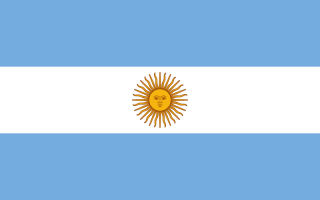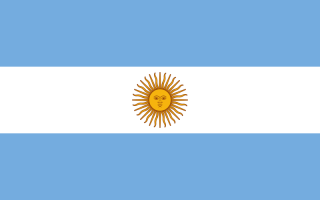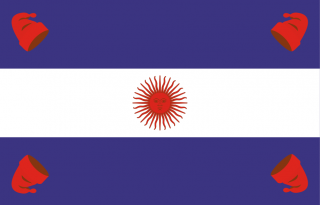
His Excellency President Bartolome Mitre addresses supporters at a rally in central Buenos Aires:
"Fellow Argentineans! I have recently returned from Rio De Janeiro and I can announce that a groundbreaking treaty has been signed. Our friends in the Empire of Brazil were magnanimous hosts of the treaty talks. And our friends from the gracious Granadine Confederation also attended and were the first to offer a draft treaty which was then debated on before being adopted. With the signing of the Treaty of Rio de Janeiro I can declare that a new era has begun. It is an era of cooperation and friendship amongst all South American nations! While the rest of the world resorts to war, the independent states of South America have realised that the best way to resolve disputes is through dialogue and compromise. It is this notion that appears to be lacking in the rest of the world, but South America is not timid- we are proud to be the first group of nations to make way for peace and prosperity in our lands. The Treaty of Rio de Janeiro will pave the way for stronger economic and military ties between the Independent Nations of South America. Yes, it is true that we have banded together for the sake of mutual security. With the United States embroiled in a civil war, and certain European powers making belligerent statements against South America, it was necessary for us to enter into this formal agreement of mutual defence for the protection of every soul that resides on this magnificent continent.
I would like to take this opportunity to comment on certain recent events that have occurred in the wider region. I would like to express an opinion on the efforts of a certain European power to draw the United States of Mexico into what is decidedly a European conflict. I find it regrettable that the United States of Mexico entered into such a one-sided treaty with the FFGB Alliance. I know, as President of the great nation of Argentina, I would never relinquish our sovereignty and independence to any foreign power- let alone a European belligerent. Indeed, it is a sad fact that the Mexican people have in effect become subjects of yet another European power- first the Kingdom of Spain and now the United Republic. One thing is for sure, the spirit of independence runs deeply through the veins of every Argentine, and I'm sure every last man, woman and child of this Republic would gladly give their lives before they would see another European power dictate to our people!
For many years our great nation has lay dormant on the international stage. We have been concentrating inwardly on our own problems. The most pressing of which was the Argentine Civil War. It had lasted since independence but for the most part has now been resolved. Under my Presidency the Argentine people have come together under one banner and finally we can begin to face our problems together as one, rather than by being divided by petty political disputes. It is time we turned our gaze outwardly to tackle the problems that face our region and the world. As you already know, the first act my government took in this regard was to begin the colonisation of the vast and untamed Patagonia region to our nation's south. I can announce that our settlers have managed to expand the borders of the Argentine Republic further south than ever before, and in this following year they will continue to do so. The settlers have encountered native savages in this wild land, but I am pleased to say most have embraced a new life of civility and respectability that comes with living as an Argentine citizen. It is this government's position that all of Patagonia east of the Andes is Argentine sovereign territory. And we will continue to expand south to pursue the goal of developing this untouched land and bringing civilisation to all the native folk who live there.
I would also like to make a few remarks on a situation within our region that is beginning to become unbearable for our Republic. Our northern neighbour, the Republic of Paraguay, is being run by an authoritarian regime headed by President Solano Lopez. The Paraguayan regime refuses to allow our trade ships free navigation along the Parana and Paraguay rivers. They impose heavy and unfair tariffs on any ship that wishes to navigate their rivers and this causes undue expense on all economies of the region and is a key factor in restricting our economic and trade growth. In addition, we have received information that the Lopez regime is intending to exert its corrupt influence over one of our other neighbours, the Eastern Republic of Uruguay. My sources suggest Lopez sympathisers are attempting to manipulate the internal political situation in the Eastern Republic, in what we can only presume is an effort to radicalise and overthrow the democratically elected Uruguayan government. Indeed, I have no hesitation in saying that President Lopez is a tyrant with an insatiable lust for power. When he rose to prominence in 1862 there is evidence he seized the Presidency by having anyone who would speak out against him either imprisoned or executed. Truly, this is a man unfit to rule the dutiful Paraguayan people.
The Argentine Republic will be bringing our concerns to the next council meeting in Rio de Janeiro, so that as a region we might discuss what is to be done about the authoritarian regime currently in power in Paraguay. I can announce today that until our concerns are addressed, any attempt by the government of Paraguay to join the council of Independent South American States will be vetoed by the government of Argentina.
The Argentine Republic has a long memory and would like to make it publically known that since independence the territorial boundaries between Argentina and Paraguay have not been formalised. With the support of other councilors of the Treaty of Rio de Janeiro we will seek to enforce- through diplomatic means- Argentine sovereign territorial integrity with respect to the Republic of Paraguay. The Paraguayan people deserve considerate and accountable leadership. We will not let them down."

